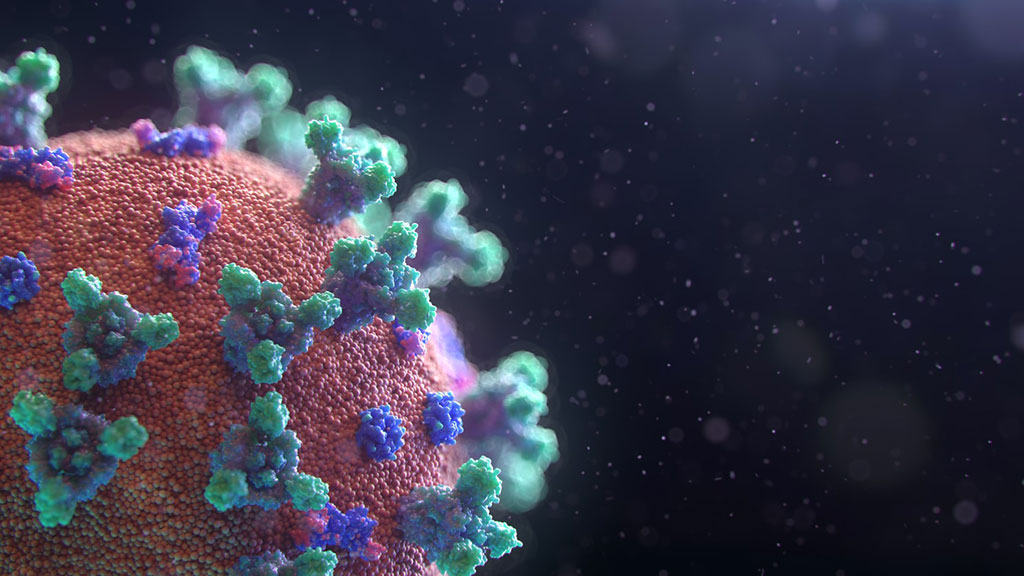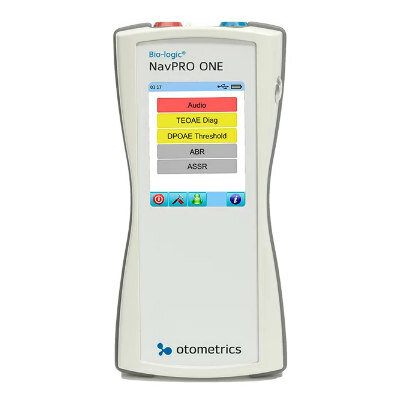Properly Designed COVID-19 Vaccine Can Induce Durable Antibody Response to SARS-CoV-2, Finds Studies
|
By HospiMedica International staff writers Posted on 12 Oct 2020 |

Illustration
Researchers have found that immunoglobulin G (IgG) antibodies to the SARS-CoV-2 virus are longer lasting in the blood and saliva of COVID-19 patients as compared to the short-lived IgM and IgA response.
The findings from two separate studies suggest that IgG antibodies could be a promising target to detect and evaluate immune responses to the novel coronavirus and a properly designed COVID-19 vaccine can induce a durable antibody response to SARS-CoV-2.
In the first study, researchers from the University of Toronto (Toronto, ON, Canada) and the Lunenfeld-Tanenbaum Research Institute at Sinai Health (Toronto, ON, Canada) found that coronavirus antibodies can last at least three months after a person becomes infected with the virus. The researchers used both saliva and blood samples from COVID-19 patients to measure and compare antibody levels for over three months post-symptom onset. They found that antibodies of the IgG class that bind to the SARS-CoV-2 spike protein are detectable for at least 115 days, representing the longest time interval measured. The study is also the first to show these antibodies can also be detected in the saliva. While the team admits there is a lot they still don’t know about antibody responses to SARS-CoV-2 infection, including how long the antibodies last beyond this period or what protection they afford against re-infection, the research could have broader implications in the development of an effective vaccine.
“Our study shows that IgG antibodies against the spike protein of the virus are relatively durable in both blood and saliva,” said Jennifer Gommerman, professor of immunology in U of T’s Temerty Faculty of Medicine and leader of the saliva testing effort. “This study suggests that if a vaccine is properly designed, it has the potential to induce a durable antibody response that can help protect the vaccinated person against the virus that causes COVID-19.”
The study led by the Toronto team was in agreement with findings from leading immunologists in the US in describing the antibody response as longer lasting. In the second study, researchers in Boston, US used enzyme-linked immunosorbent assay (ELISA) to measure the antibody responses of 343 COVID-19 patients up to 122 days after symptom onset. The researchers then compared the measurements to prepandemic blood sample controls. The team found that spike protein-specific IgM and IgA antibodies were short-lived, falling to lower than detection levels at around 49 and 71 days, respectively, after the appearance of symptoms. On the other hand, the spike protein-targeted IgG responses decayed more slowly, with just three patients losing them within 90 days after the appearance of symptoms. The researchers also found no cross-reactivity of antibodies to SARS-CoV-2 RBD with widely circulating common cold coronaviruses, demonstrating the specificity of the assay.
"These data suggest that RBD-targeted antibodies are excellent markers of previous and recent infection, that differential isotype measurements can help distinguish between recent and older infections, and that IgG responses persist over the first few months after infection and are highly correlated with neutralizing antibodies," noted author Anita Iyer, PhD, of Massachusetts General Hospital and Harvard Medical School and colleagues.
Related Links:
University of Toronto
Lunenfeld-Tanenbaum Research Institute
The findings from two separate studies suggest that IgG antibodies could be a promising target to detect and evaluate immune responses to the novel coronavirus and a properly designed COVID-19 vaccine can induce a durable antibody response to SARS-CoV-2.
In the first study, researchers from the University of Toronto (Toronto, ON, Canada) and the Lunenfeld-Tanenbaum Research Institute at Sinai Health (Toronto, ON, Canada) found that coronavirus antibodies can last at least three months after a person becomes infected with the virus. The researchers used both saliva and blood samples from COVID-19 patients to measure and compare antibody levels for over three months post-symptom onset. They found that antibodies of the IgG class that bind to the SARS-CoV-2 spike protein are detectable for at least 115 days, representing the longest time interval measured. The study is also the first to show these antibodies can also be detected in the saliva. While the team admits there is a lot they still don’t know about antibody responses to SARS-CoV-2 infection, including how long the antibodies last beyond this period or what protection they afford against re-infection, the research could have broader implications in the development of an effective vaccine.
“Our study shows that IgG antibodies against the spike protein of the virus are relatively durable in both blood and saliva,” said Jennifer Gommerman, professor of immunology in U of T’s Temerty Faculty of Medicine and leader of the saliva testing effort. “This study suggests that if a vaccine is properly designed, it has the potential to induce a durable antibody response that can help protect the vaccinated person against the virus that causes COVID-19.”
The study led by the Toronto team was in agreement with findings from leading immunologists in the US in describing the antibody response as longer lasting. In the second study, researchers in Boston, US used enzyme-linked immunosorbent assay (ELISA) to measure the antibody responses of 343 COVID-19 patients up to 122 days after symptom onset. The researchers then compared the measurements to prepandemic blood sample controls. The team found that spike protein-specific IgM and IgA antibodies were short-lived, falling to lower than detection levels at around 49 and 71 days, respectively, after the appearance of symptoms. On the other hand, the spike protein-targeted IgG responses decayed more slowly, with just three patients losing them within 90 days after the appearance of symptoms. The researchers also found no cross-reactivity of antibodies to SARS-CoV-2 RBD with widely circulating common cold coronaviruses, demonstrating the specificity of the assay.
"These data suggest that RBD-targeted antibodies are excellent markers of previous and recent infection, that differential isotype measurements can help distinguish between recent and older infections, and that IgG responses persist over the first few months after infection and are highly correlated with neutralizing antibodies," noted author Anita Iyer, PhD, of Massachusetts General Hospital and Harvard Medical School and colleagues.
Related Links:
University of Toronto
Lunenfeld-Tanenbaum Research Institute
Latest COVID-19 News
- Low-Cost System Detects SARS-CoV-2 Virus in Hospital Air Using High-Tech Bubbles
- World's First Inhalable COVID-19 Vaccine Approved in China
- COVID-19 Vaccine Patch Fights SARS-CoV-2 Variants Better than Needles
- Blood Viscosity Testing Can Predict Risk of Death in Hospitalized COVID-19 Patients
- ‘Covid Computer’ Uses AI to Detect COVID-19 from Chest CT Scans
- MRI Lung-Imaging Technique Shows Cause of Long-COVID Symptoms
- Chest CT Scans of COVID-19 Patients Could Help Distinguish Between SARS-CoV-2 Variants
- Specialized MRI Detects Lung Abnormalities in Non-Hospitalized Long COVID Patients
- AI Algorithm Identifies Hospitalized Patients at Highest Risk of Dying From COVID-19
- Sweat Sensor Detects Key Biomarkers That Provide Early Warning of COVID-19 and Flu
- Study Assesses Impact of COVID-19 on Ventilation/Perfusion Scintigraphy
- CT Imaging Study Finds Vaccination Reduces Risk of COVID-19 Associated Pulmonary Embolism
- Third Day in Hospital a ‘Tipping Point’ in Severity of COVID-19 Pneumonia
- Longer Interval Between COVID-19 Vaccines Generates Up to Nine Times as Many Antibodies
- AI Model for Monitoring COVID-19 Predicts Mortality Within First 30 Days of Admission
- AI Predicts COVID Prognosis at Near-Expert Level Based Off CT Scans
Channels
Critical Care
view channel
Ingestible Smart Capsule for Chemical Sensing in the Gut Moves Closer to Market
Intestinal gases are associated with several health conditions, including colon cancer, irritable bowel syndrome, and inflammatory bowel disease, and they have the potential to serve as crucial biomarkers... Read moreNovel Cannula Delivery System Enables Targeted Delivery of Imaging Agents and Drugs
Multiphoton microscopy has become an invaluable tool in neuroscience, allowing researchers to observe brain activity in real time with high-resolution imaging. A crucial aspect of many multiphoton microscopy... Read more
Novel Intrabronchial Method Delivers Cell Therapies in Critically Ill Patients on External Lung Support
Until now, administering cell therapies to patients on extracorporeal membrane oxygenation (ECMO)—a life-support system typically used for severe lung failure—has been nearly impossible.... Read moreSurgical Techniques
view channel
Pioneering Sutureless Coronary Bypass Technology to Eliminate Open-Chest Procedures
In patients with coronary artery disease, certain blood vessels may be narrowed or blocked, requiring a stent or a bypass (also known as diversion) to restore blood flow to the heart. Bypass surgeries... Read more
Intravascular Imaging for Guiding Stent Implantation Ensures Safer Stenting Procedures
Patients diagnosed with coronary artery disease, which is caused by plaque accumulation within the arteries leading to chest pain, shortness of breath, and potential heart attacks, frequently undergo percutaneous... Read more
World's First AI Surgical Guidance Platform Allows Surgeons to Measure Success in Real-Time
Surgeons have always faced challenges in measuring their progress toward surgical goals during procedures. Traditionally, obtaining measurements required stepping out of the sterile environment to perform... Read morePatient Care
view channel
Portable Biosensor Platform to Reduce Hospital-Acquired Infections
Approximately 4 million patients in the European Union acquire healthcare-associated infections (HAIs) or nosocomial infections each year, with around 37,000 deaths directly resulting from these infections,... Read moreFirst-Of-Its-Kind Portable Germicidal Light Technology Disinfects High-Touch Clinical Surfaces in Seconds
Reducing healthcare-acquired infections (HAIs) remains a pressing issue within global healthcare systems. In the United States alone, 1.7 million patients contract HAIs annually, leading to approximately... Read more
Surgical Capacity Optimization Solution Helps Hospitals Boost OR Utilization
An innovative solution has the capability to transform surgical capacity utilization by targeting the root cause of surgical block time inefficiencies. Fujitsu Limited’s (Tokyo, Japan) Surgical Capacity... Read more
Game-Changing Innovation in Surgical Instrument Sterilization Significantly Improves OR Throughput
A groundbreaking innovation enables hospitals to significantly improve instrument processing time and throughput in operating rooms (ORs) and sterile processing departments. Turbett Surgical, Inc.... Read moreHealth IT
view channel
Printable Molecule-Selective Nanoparticles Enable Mass Production of Wearable Biosensors
The future of medicine is likely to focus on the personalization of healthcare—understanding exactly what an individual requires and delivering the appropriate combination of nutrients, metabolites, and... Read more
Smartwatches Could Detect Congestive Heart Failure
Diagnosing congestive heart failure (CHF) typically requires expensive and time-consuming imaging techniques like echocardiography, also known as cardiac ultrasound. Previously, detecting CHF by analyzing... Read moreBusiness
view channel
Expanded Collaboration to Transform OR Technology Through AI and Automation
The expansion of an existing collaboration between three leading companies aims to develop artificial intelligence (AI)-driven solutions for smart operating rooms with sophisticated monitoring and automation.... Read more


















